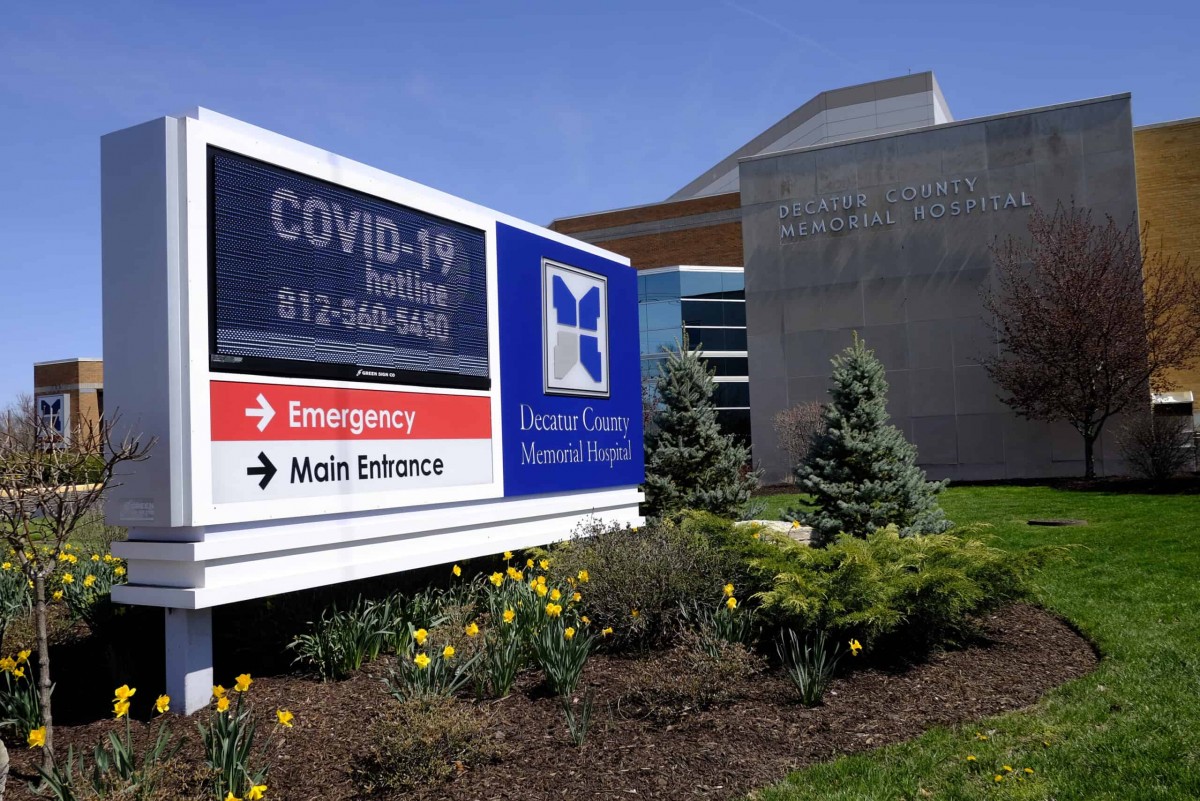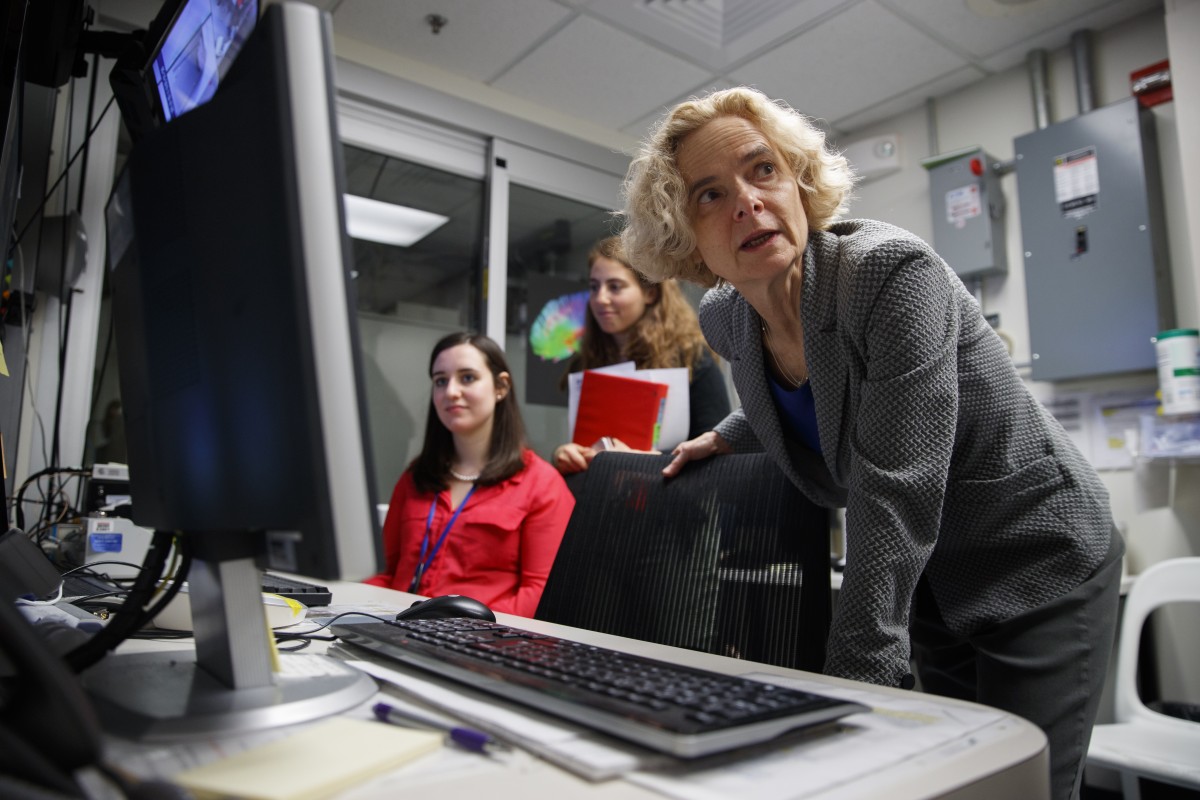This article was originally published by Ohio Valley ReSource.
As President Trump ordered meatpacking plants on Tuesday to keep operating amid the coronavirus pandemic, more details are emerging about the concerns workers had about their safety at a facility in Louisville, where dozens of workers were infected and one died.
The Kentucky Cabinet for Health and Family Services reported as of Monday, the state was aware of 220 coronavirus cases at four meatpacking plants, including 34 cases at a JBS Swift plant in Louisville. The cabinet also reported one death — at that Louisville plant.
Records of complaints filed with the Louisville Metro Public Health Department show that in early April employees were concerned that the company was not doing enough to protect them.
One health department complaint, filed on April 9, stated a worker at the JBS Swift meatpacking plant said a coworker tested positive for the coronavirus. According to the complaint, the company did not inform employees about the positive case, and the plant was not using social distancing for its employees at that time.
A second complaint, filed on April 13, stated that despite an employee death due to COVID-19, the company was not taking any cleaning measures at the plant.
According to the complaint, “an employee had a positive test in the plant, and has passed away. Employee worked on the King floor in the plant, stated the company has not taken any measures as far as cleaning or any sanitization of the facility.”
The complaint continued, “employees are concerned about their safety inside the [building]. Stated after concerns grew inside and working at location in [building], company told employees that if they did not come to work they would be terminated.”
In a statement sent Tuesday to the Ohio Valley ReSource, JBS USA spokesperson Cameron Bruett said that the company is now testing worker temperatures and requiring face masks. He also said no worker is being forced to work or is being punished for absences due to health reasons. The company is also staggering shifts and breaks, deep-cleaning facilities every day, and removing workers vulnerable to the virus from facilities.
Union Request
United Food and Commercial Workers Local 227 represents workers at the JBS Swift plant and several other meatpacking plants in Kentucky, including a Tyson Foods plant in Henderson County closing this week for sanitation after a coronavirus outbreak.
Union spokesperson Caitlin Blair did not directly comment on the complaints on record with the Louisville health department, but said workers are concerned for their health and safety.
“Yet they continue to show up to work to produce the food that we all need, and we owe them our gratitude for being brave frontline workers who didn’t sign up for this,” Blair said. “And we need to do whatever it takes to protect them and support them.”
In a statement to the Resource, Blair said the union is asking every employer they work with to be transparent with information on positive cases so that workers can make the best decisions for their health.
“We are working directly with JBS to ensure the company takes action to immediately strengthen protections at this plant to keep these workers safe on the job,” Blair said in the statement. “We’re calling on our federal and state officials to provide increased access to testing for meatpacking workers and a place in line for PPE as it becomes available. The CDC and OSHA recently issued guidelines for meatpacking and poultry plants to keep workers safe. These guidelines shouldn’t be a suggestion. They should be mandatory.”
The Centers for Disease Control and Prevention and the Occupational Safety and Health Administration on Sunday released optional guidance for meatpacking plants to follow, including asking there be distance between workers, staggering breaks for workers, and reducing the contact workers have with each other in plants and during ride-sharing to and from the workplace.
During Tuesday’s edition of WFPL’s “In Conversation,” host Rick Howlett asked Louisville Mayor Greg Fischer how the city was monitoring COVID-19 cases at the JBS Swift plant.
“We have a team of folks that visit employers and other groups to make sure proper protocols are in place, and if not you get corrective action with that. These meatpacking plants all around the country obviously have been a very significant challenge, some with hundreds and hundreds of infections in their plants,” Fischer said. “So, the nature of that work is people are working very closely together, which of course is a problem. That’s why we want the 6-foot distancing. So, yes, we are working with JBS to make sure that they have all the best protocols they can have in place for their business, which is defined as an essential business.”
Health Inspection
Louisville Metro Public Health Department has the authority to perform unannounced inspections of workplaces and remove individuals with COVID-19 symptoms from the workplace. Department spokesperson Dave Langdon said inspectors performed two inspections at the plant in April: one on April 13 — the same day the department received the complaint that alleged a worker with coronavirus died — and a second inspection on April 21.
According to investigation notes, inspectors during the April 13 inspection found several precautions to prevent virus spread were already in place, including temperature scanning for employees, protective equipment and sanitizing materials.
However, inspectors at that time still recommended that more social distancing needed to be practiced, and workers who were cutting, rendering, and packaging meat products still lacked proper barriers. The inspectors also requested soap and paper towels be made available on production floors for workers.
“Still need barriers placed between individual workstations. These are small compact areas where it is difficult to practice 6 feet of social distancing,” the report states. “Ensure all hand sinks in the facility and on the production, floors are stocked with soap and disposable paper towels.”
Ultimately, the inspectors on April 13 ordered plant management to ensure more social distancing, add barriers, and follow Centers for Disease Control and Prevention guidance.
During the subsequent April 21 inspection, inspectors still noticed failures to social distance at the plant.
“During lunch time, observed employees standing in close proximity (less than 6 feet apart) at the hot holding station. Observed Liberty Food Service employees improperly washing hands. Instructed Food Service Manager to ensure employees use a barrier to turn off the hand sink. Plant Operator said he would request maintenance to install foot pedals on the cafeteria hand sinks,” the report states.
Inspectors also noted that the plant was following CDC guidance issued on April 20, which allowed for workers who tested positive for the virus who were asymptomatic for seven days to return to work. The guidance also allowed for close contacts to those who tested positive after, but were asymptomatic for seven days, to return to work.
Inspectors “strongly recommended” that those with COVID-19 and close contacts of those individuals be removed from work for 14 days, not seven days.
The inspectors also recommended that more barriers be installed in the plant cafeteria, better face mask use be encouraged as many employees were “observed pulling down their masks, so that noses were exposed.” Inspectors said health department exposure advisories should be handed out to employees who had close contact with coworkers positive with the coronavirus.
Presidential Order
Ohio Valley worker safety advocates in recent weeks have raised concerns about the spread of coronavirus in meatpacking plants because of the tight quarters workers operate in and the high levels of interaction workers have with each other. These plants may now have to stay open, with President Donald Trump signing an executive order Tuesday to keep plants operating. Trump said he is also working on a plan “to solve any liability problems” for meatpacking companies.
Kentucky Agriculture Commissioner Ryan Quarles praised the executive order in a release, pointing to potential financial impacts that livestock farmers could see from shuttered meatpacking plants.
“We’ve already seen how temporary plant shutdowns in other states can have a major ripple effect on our way of life: a decline in livestock and poultry prices, and rumors of protein shortages in grocery stores,” Quarles said in a statement. “President Trump’s decision will help reduce disruption in our food supply chain and better help protect workers.”
The UFCW urged President Trump in a release Tuesday to enact enforceable coronavirus safety standards for meatpacking companies to follow if plants were to remain open.
Democratic Representative Bobby Scott of Virginia, the chairman of the House Education and Labor Committee, called Trump’s executive order “disturbing” if no mandated safety standards are required in meatpacking plants.
“There is clear evidence that without proper protections from COVID-19, workers in meat processing plants and other workplaces will continue to fall ill and die from this disease,” Scott said in a statement. “The administration would better reflect the best of America’s values if it used the [Defense Production Act] to mandate the production and distribution of personal protective equipment, while issuing an emergency workplace safety standard to protect workers from COVID-19.”
Worker safety advocates have said the lack of an enforceable safety standard among meatpacking plants could lead to some plants not offering enough protection.
Kentucky Governor Andy Beshear said during a Wednesday press conference that despite Trump’s order, it’s important for meatpacking plants to follow health guidelines and regulations, or risk putting their workers in harm’s way.
“If you know you got a problem and you’re unwilling to pause to fix it, you’re going to have a bigger problem going forward,” Beshear said. “It’s the same as any of these regulations that we’re talking about that if we don’t follow them and do what it takes to lessen the spread, then you end up with a worse result.”
NOTE: This story was updated on Wednesday, April 29, 2020, to include Gov. Beshear’s comments and information about public health inspections at the JBS facility.
Amina Elahi, Rick Howlett and Laura Ellis of WFPL, and Jeff Young of the ReSource contributed reporting. This story may be updated.



